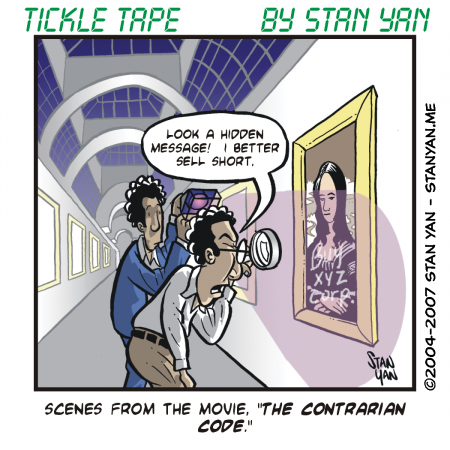Trading is challenging. It pushes your skills to the limits. And unless you manage your risk carefully, the consequences of a wrong move can be fatal. It’s vital for your survival that you make sure you’re ready to trade before you put your ego or capital on the line. You wouldn’t try to climb Mount Everest without the proper mindset or equipment, so why trade when you’re not ready? Unless you are rested, relaxed, and well equipped, it’s better to stay out of the markets until you are properly geared up. Here are some basic issues to consider before trading in earnest.
It’s important to do a little homework before the markets open, and limit your trading alternatives. Although some seasoned traders say they don’t need to prepare for the markets (since they have traded the same vehicles for years), it’s essential that novice traders appreciate the importance of preparation. Good preparation means knowing which specific trading vehicles you will trade before you enter the markets. It’s useful to decide specifically what you will trade since the vast number of choices can be overpowering.
You’ll find you will make more profits if you restrict your focus to a few specific trades (You don’t need to trade every possible opportunity to be profitable, and trying to do so will often overwhelm you to the point that you won’t make any profitable trades). And don’t forget about outlining a detailed trading plan and sticking to it. Make sure that you account for every single detail (for example, entry strategy, exit strategy, and risk control). Don’t wait until the last minute to completely flesh out your trading plan. Prepare early.
It’s also important to anticipate all possible adverse influences that may go against your trading plan. Just as the mountain climber must anticipate bad weather, traders must anticipate events that may unduly influence market action. For example, make sure you’ve accounted for significant market events, such as interest rate changes, earnings reports, mergers, and acquisitions, or the current standing of legal proceedings. The masses are easily swayed by these events, and your trading plan can be spoiled almost instantly should these events occur. So beware of them, and be ready to change your plans should you see them on the horizon.
Make sure you are mentally prepared. Trading is chaotic, stressful, and emotional. Your mind must be working at full speed in order to vigilantly attend to the various sources of incoming information required to take quick and decisive action. It’s vital that you cultivate the right mindset. Make sure that major sources of stress don’t intrude into your consciousness. Spend your off-hours coping with stressors and resolving past conflicts. Don’t minimize the potential influence of these psychological factors on your mindset. Unless you take care of them beforehand, they can interfere with your immediate experience as you put on trades.
It’s also essential to be physically prepared. Although you may sit in front of a computer screen most of the day, it’s important to remember that this relatively sedentary activity still requires physical endurance. If you don’t have the physical energy to carefully monitor your trades, you’ll tend to act impulsively because you’re tired and unable to keep up with the fast-paced activity. Make sure you get the proper exercise and nutrition. Not only will you build up physical stamina to meet the demands of trading, but you’ll also blow off steam. Trading is stressful. A regular exercise program ensures that stressful emotions are not pent up. By releasing stressful emotions, you’ll feel re-energized and ready to face the new challenges and stressors that the markets produce every day. Don’t be caught off-guard. Prepare yourself physically and mentally, and reap the benefits.


